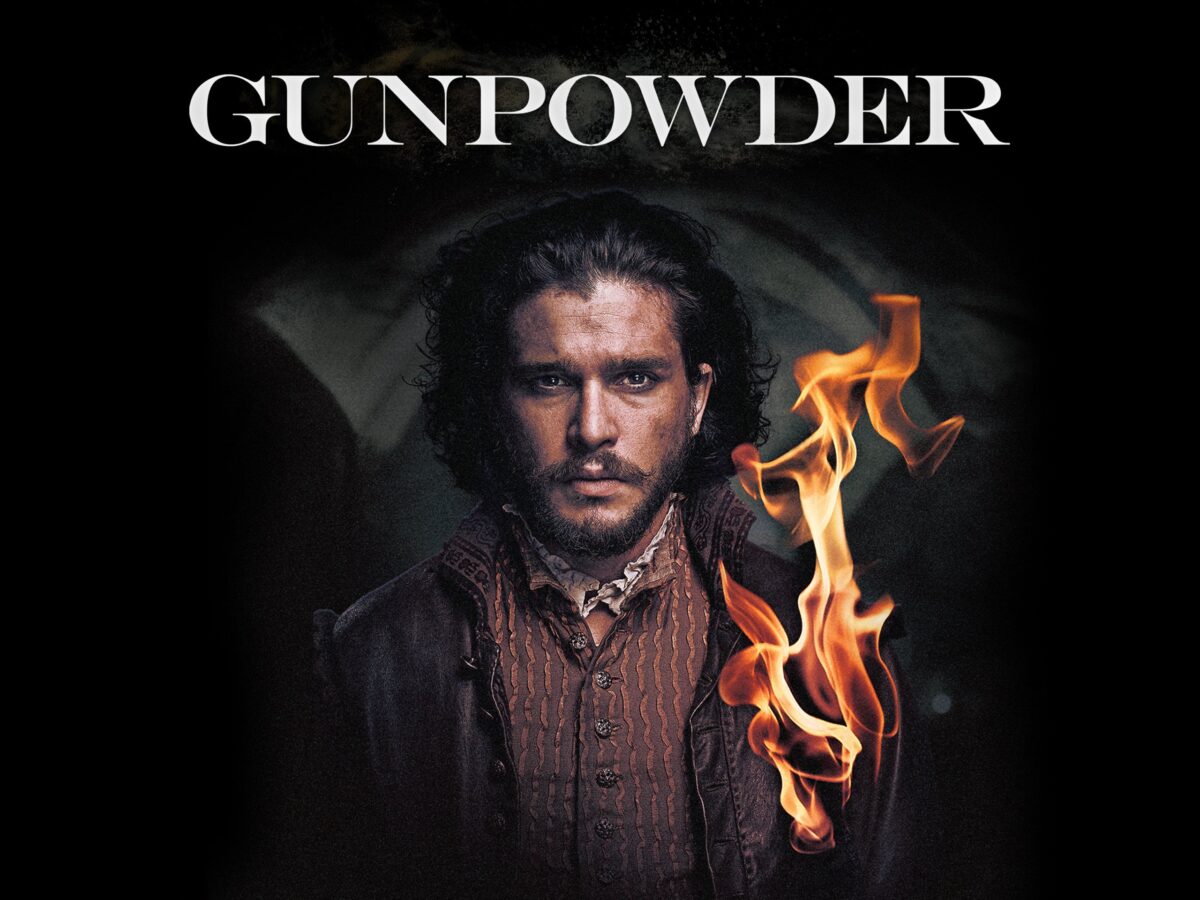As I perused HBO Max’s period offerings last week, I came upon a show that I had always intended to check out, but ultimately lost track of. As his starring role in Game of Thrones started to wind down in 2017, Kit Harrington branched out into another heavily-costumed drama, this time in Stuart England. Playing Robert Catesby, the reputed mastermind of the infamous Gunpowder Plot to blow up King James I and Parliament in 1605, still commemorated by the British holiday Guy Fawkes Day (ironically named after the most famous conspirator, captured guarding the store of gunpowder). While I have a few Elizabethan dramas on various watch lists, I can’t recall ever watching something set in early seventeenth-century, Stuart, England; everything seems to either fall during the reign of Elizabeth or later, after the Civil War and Restoration. Eager to learn more about this legendary event, I promptly burned through its quite reasonable three hour-long episodes.
For historians, Gunpowder offers a veritable bonanza of meticulously detailed seventeenth century content. From the brutal realities of Catholic (and, elsewhere, Inquisitorial) persecution in the age of European religious wars to the fractious politics of an English court ruled by a new, Scottish, king, the limited series offers an immersive experience that I could hardly find fault with. The costuming is impeccable to my admittedly lightly trained eye, and little details like Parliament being called by the king (rather than convening on their own) and the operation of matchlock muskets show a gratifying attention to historical detail.
What critiques I have exist almost entirely in the realm of character and plot. There’s no way around the reality that the Gunpowder Plot is an interesting footnote in history, but really nothing more than that. As I learned through some follow-up research, the plot itself was fairly straightforward, its discovery was largely accidental and still shrouded in some mystery; these are not the details that a compelling story make, let alone one stretched out over three hours. In need of an antagonist, Gunpowder also villainized James’ Lord Privy Seal, Lord Salisbury, making him much more dogged in his pursuit of Catholics than the record supports. Perhaps the most puzzling choices, though, come in Harrington’s character of Robert Catesby. Driven to revenge by the torture and execution of his fellow Catholics, including his older sister, Catesby sets the wheels of the titular plot in motion. In a pleasantly surprising turn, Gunpowder does not portray this persecution as an analogue for later ethnic cleansings; the Catholics are shown swearing oaths to protect the “one true religion,” lending some credence to the Crown’s concerns, and Catesby witnesses the horrific execution of other religious minorities at the hands of the Catholic Spanish Inquisition. No side is entirely blameless, yet while Catesby seems taken aback by seeing fellow Catholics commit the same atrocities he himself is avenging, this proves only a blip that is quickly overcome and consequently ignored.
The audience, then, is left with a unique period piece that seems to embrace the idea that most people in the part were Not Good People by our modern standards at the expense of depriving its audience of any relatable major characters. This ultimately left me rather ambivalent about the series as a whole; possibly useful in clips for teaching aids, but not so engaging that I would ever actively recommend it to others or rewatch it myself. Who knows? Perhaps I’ll prefer this approach to the more pulpy Elizabethan dramas in my future; only time will tell, but for now, I’m comfortable saying that, in this age of overwhelming choices, Gunpowder is one you can safely put off.
